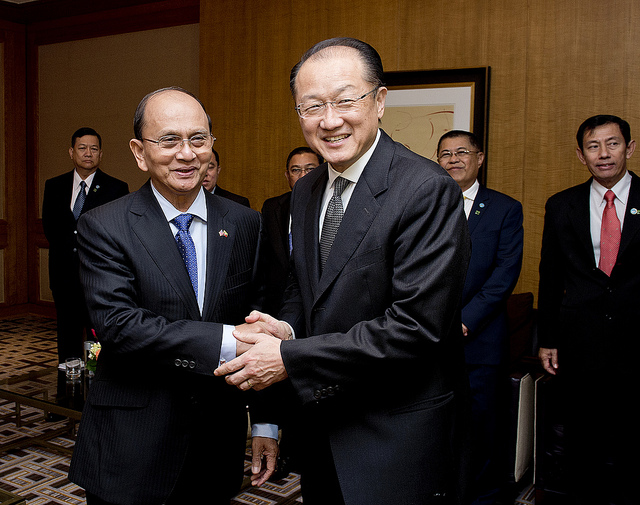The World Bank on Thursday announced a new funding package for Burma, in it’s first full framework for the country since 1984.
The Country Partnership Framework (CPF) will see US$1.6 billion in credits, loans and grants, as well as US$1 billion from the World Bank’s private investment arm. Funds in the form of technical assistance will also be granted.
“The CPF comes during the country’s transition from military rule to democratic governance, with its economy shifting from state-directed to market-oriented,” said the Bank in a 23 April statement, which identifies the framework priorities as: poverty reduction; improving the provision of essential services, such as health and education; and the development of Burma’s private sector.
“The new Country Partnership Framework for Myanmar [Burma] is based on priorities developed in close consultation and engagement with stakeholders in Myanmar,” said Ulrich Zachau, World Bank Country Director for Myanmar.
[related]
“The Framework focuses on reducing rural poverty, providing basic services, and stimulating the private sector in an inclusive manner, so that especially the poor and vulnerable share in the benefits of reform. We look forward to working in partnership with the government, investors and civil society groups for the prosperity of the people of Myanmar,” he says.
Also announced on Thursday by the Bank was an agricultural assistance project for Burma, which will see a loan of US$100 million to increase year-round farming productivity.
Targeting rural areas, the project aims to improve land and water management, as well as recommendations for crop diversity, more effective farming techniques and training.
The World Bank has faced criticisms throughout its history for its encouragement of hasty economic liberalisation policies in countries that have weak or uncompetitive economies, and for representing the interests of wealthy developed nations, most notably the US, who is the Bank’s biggest funder and maintains a veto vote. The granting of sovereign immunity is also a prerequisite of any country doing business with the Bank, meaning the institution can not be held liable for any of its interventions.



